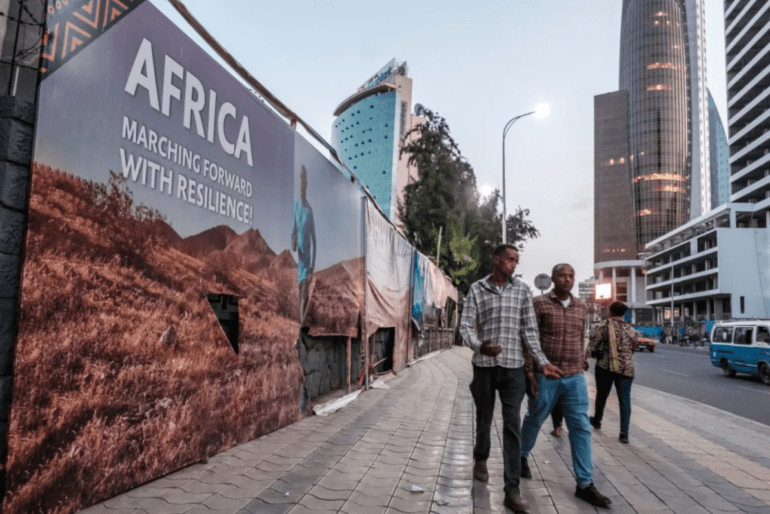TL;DR:
- African Union’s summit in Ethiopia highlights AI’s role in the continent’s digital transformation.
- Draft Conceptual Framework for AI strategy aims to shape ethical and economically fruitful AI development.
- AI’s potential impact on key sectors like education, healthcare, agriculture, and finance.
- Commitment to achieving Sustainable Development Goals (SDGs) and Agenda 2063 through AI.
- Concerns about the dominance of global tech giants in the African AI landscape.
- The brain drain of African AI talent to North America.
- Role of data labelers in AI development, with issues of low compensation.
- African Union’s commitment to advancing digitalization and AI for broader benefits.
Main AI News:
In a world where AI developments in the U.S. and Europe dominate headlines, it’s crucial not to overlook the global landscape. This week, we focus on The African Union’s digital transformation summit, which brought together leaders from all 55 African nations for an extensive four-day discussion on the continent’s digital future and AI strategy.
Held recently in Ethiopia, the summit commenced with three days of expert meetings, with the Draft Conceptual Framework of the Continental Strategy on Artificial Intelligence at the forefront of AI discussions. Initially drafted in August and still in progress, this framework aims to shape an ethical and economically fruitful AI strategy for Africa. It seeks to address key sectors, including education, healthcare, agriculture, and finance, where AI can make a significant impact. The summit provided a platform for ongoing deliberations on the framework, defining its principles, strategic objectives, and aspects related to security and responsible AI use.
Members unanimously recognized AI’s pivotal role in achieving Africa’s Sustainable Development Goals (SDGs) and Agenda 2063, a 50-year development plan often referred to as Africa’s “blueprint.” These goals encompass economic growth, political independence, democracy, gender equality, and the preservation of African cultural identity.
According to a press release from the African Union, “AI is important to Africa because of its economic, social, political, and geopolitical impact. AI technologies can stimulate economic growth, drive innovation, generate employment opportunities, and support education and the preservation of African languages.”
The summit’s discussions concluded with member states committing to advance digitalization efforts in areas such as climate change, infrastructure development, and energy. The draft declaration also emphasized the urgency of addressing data governance issues resulting from the proliferation of AI. The African Union pledged to assist member states in developing national data governance systems and capabilities.
Despite Africa’s late entry into the internet revolution, AI startups, groups, and conferences are thriving on the continent. However, global tech giants have largely dominated the scene, raising concerns about representation and potential biases in AI development. Furthermore, African talent in AI has faced a significant brain drain as lucrative tech opportunities abroad attract professionals. A survey conducted in 2022 showed that many AI founders born in sub-Saharan Africa pursued graduate education in North America and remained there for work.
Meanwhile, countries like Kenya and Uganda have played a crucial role in AI by contributing to foundational models and training AI models to avoid producing harmful content. However, the individuals performing this demanding work, known as data labelers, often receive minimal compensation and are not reaping the benefits of AI’s advancements.
In the words of Amani Abou-Zeid, Commissioner for Infrastructure and Energy of the African Union Commission, “Digitalization is one of the greatest transformative opportunities of our time. Yet, too few people can truly access its benefits on our continent.” The African Union’s commitment to advancing AI and digitalization represents a significant step toward harnessing the potential of these technologies for the benefit of all Africans.
Conclusion:
The African Union’s emphasis on AI’s role in its future development and the commitment to addressing digitalization challenges signal a growing awareness of the potential benefits and risks. As Africa’s AI ecosystem matures, there may be opportunities for local innovation and collaboration to bridge the current gaps in representation and talent retention.

